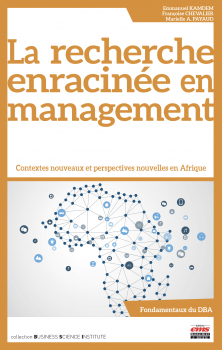The Nature of Power in organizations
Power in Africa is based on models that often elude Western approaches. In sub-Saharan Africa, power refers to the individual’s ability to mobilize resources and attributes in an invisible universe that is only accessible to the initiated. Power is anchored in traditional social practices where oral culture and “palaver,” magic and the paranormal may be important. These are all dimensions of leadership that must not be neglected.
The place of religion in business
Reconciling religion and business operations is a question that arises in both Europe and Africa. However, in Africa, the ethnic, political, economic and religious dimensions are often very tightly intertwined. Religion flows through not only social life but professional life. Its manifestations are visible every day, as when executives say, “May God bless our business!”. Similarly, employees are perceived not only on the basis of their profession but also of their ethnic group and religion. It is important to be aware of all these data when managing human resources. In this context for instance, informal mutual assistance with recruitment and financing tontines (self-financing groups) are part of daily life.
Employment for young graduates in Africa
The issue of youth employment raises questions about our traditional categories. On the one hand, the role of the informal economy in Africa makes any statistics-based approach unreliable. On the other hand, the classification of “young” extends to the age of 35 or even later. Thus, in Côte d’Ivoire, for instance, a “young person” is anyone who, for various reasons (education, family assistance, food security, etc.), remains under their parents’ authority. Age is more than a biological marker: it is a social marker. This sociological finding must be taken into consideration by anyone who wishes to develop policies and tools for the professional integration of young graduates in Africa.
Ubuntu appears to be a singular component for change management and the search for reconciliation mechanisms
Ubuntu: “I am because we are”
The sociological and ethnological approach is important for management and is closely related to the understanding of the community, in both personal and professional life. The notion of ubuntu, which was central to Desmond Tutu’s philosophy, and then frequently mentioned by Nelson Mandela in his speeches, speaks to this point. This word, which comes from the Bantu languages of southern Africa, emphasizes the idea of interdependence among individuals. The individual only exists because others exist: “I am because we are.” and “since we are, I am “. Thus, ubuntu appears to be a singular component for change management and the search for reconciliation mechanisms. Management is located at the crossroads of these collective dynamics.
Avoid “one thought fits all” management
To be connected to the field, make decisions, manage people, managers need to remember that management practices are profoundly influenced by history and context. Beyond management tools, this involves borrowing the means needed to understand managers’ actions from sociologists. For people working in Africa, this also means avoiding “one thought fits all” management and particularly the temptation to apply Western approaches and readymade solutions in situations that are very different from what we are used to. One size does not fit all!
Find out more about management in Africa in "La recherche enracinée en management, Contextes nouveaux et perspectives nouvelles en Afrique", edited by Emmanuel Kamdem, Françoise Chevalier, and Marielle A. Payaud (2020), Editions EMS.
Françoise Chevalier (2022), "Sociologie et management : les rencontres", In H. Tedongmo Teko & G. Etogo (Eds.), Le Pluralisme managérial en Afrique, Editions EMS.
Françoise Chevalier et Emmanuel Kamdem (2019), "Field Research and Grounded Theory: An Avenue for Future Research in Africa" in Advancing African Knowledge Management and Education, H. Kazeroony, A. Stachowicz-Stanusch, & W. Amann, (Eds), Information Age Publishing, USA, pp. 81-98.











